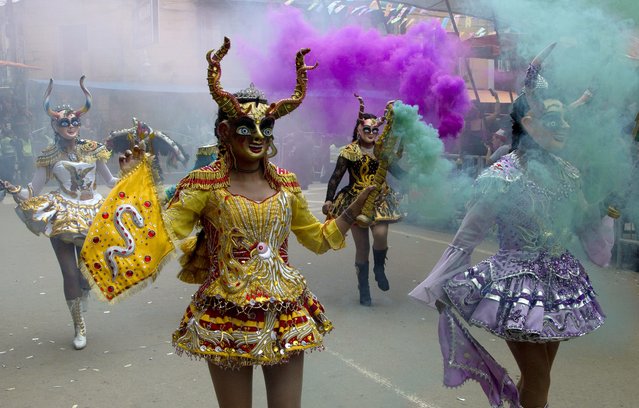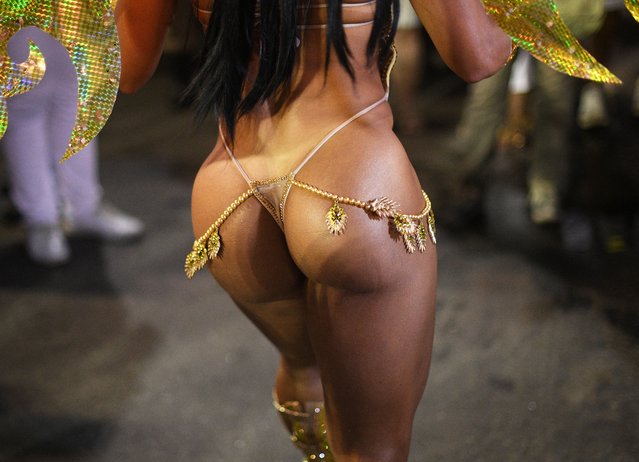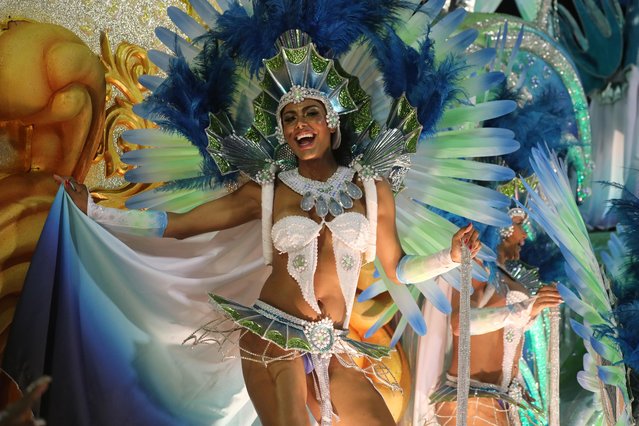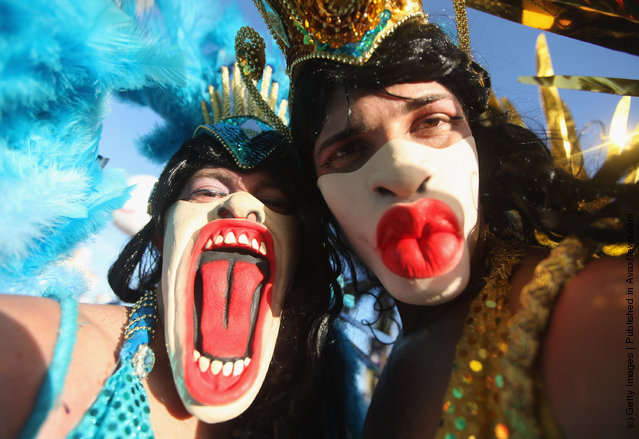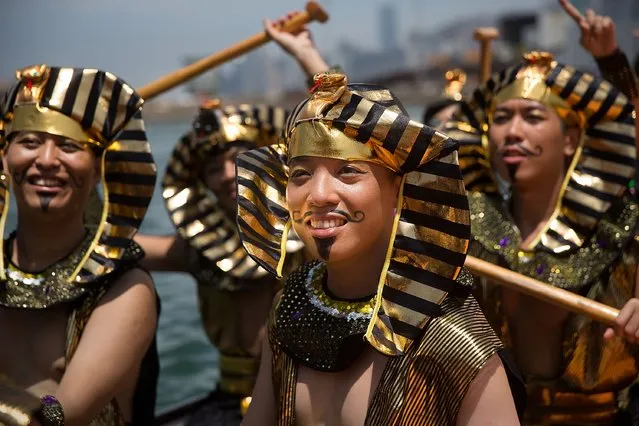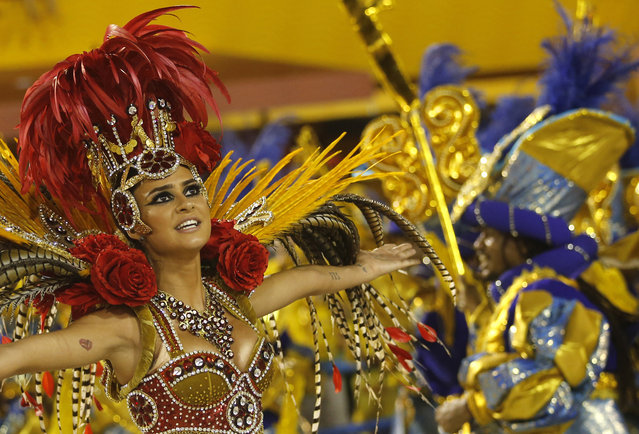
A performer from the Academicos do Grande Rio samba school dances during carnival celebrations at the Sambadrome in Rio de Janeiro, Brazil, early Monday, February 16, 2015. (Photo by Silvia Izquierdo/AP Photo)
19 Feb 2015 13:53:00,post received
0 comments


